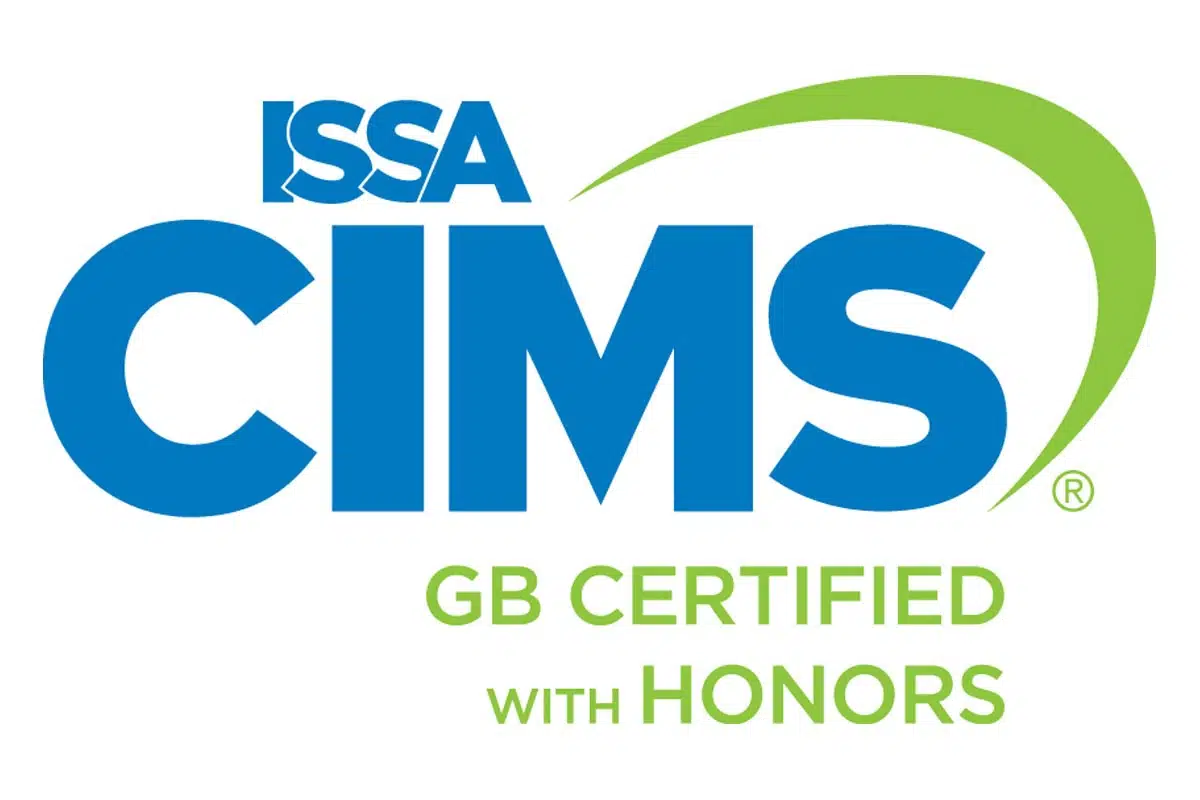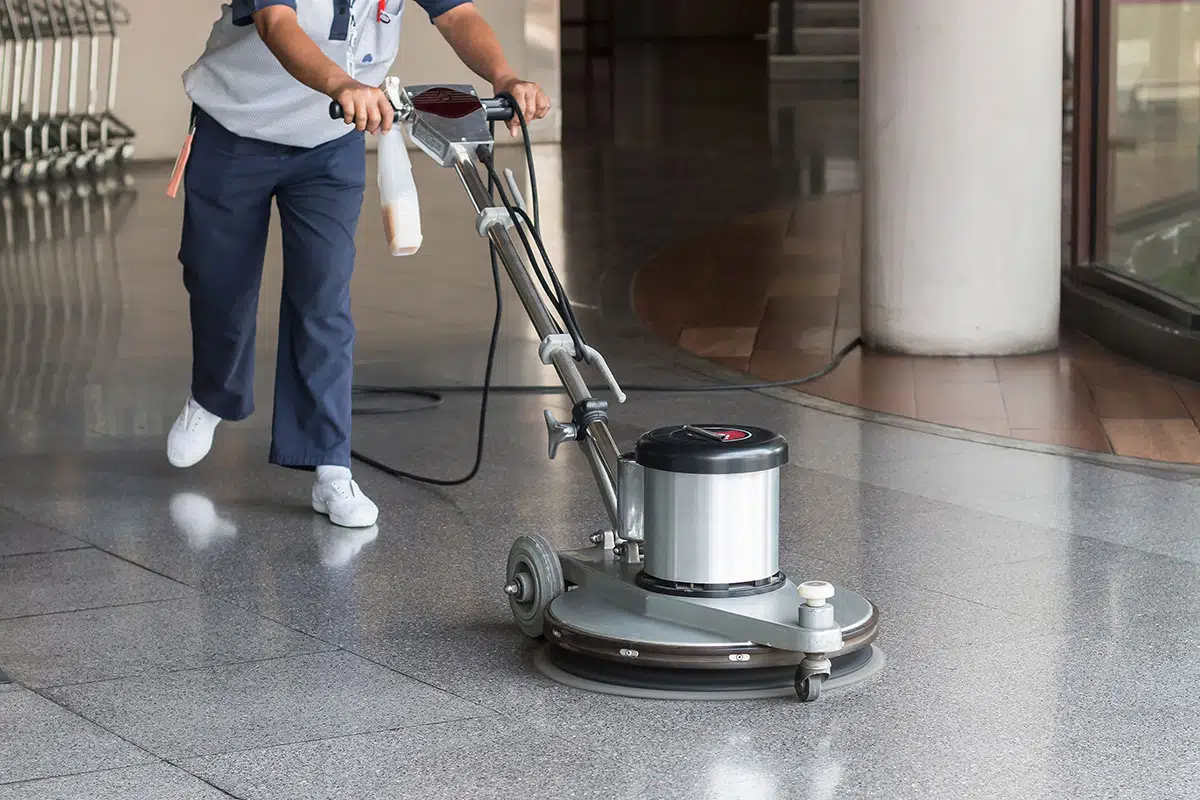Whether you’re hiring a new custodial services provider or keeping your current one through the coming year, a thorough review of the custodial services contracts is critical.
A reliable contract janitorial services business should provide you with a detailed contract—one that ensures consistently high standards of sanitation and cost-effective value. In short, a contract amounts to a document of accountability.
With decades of experience in providing contract custodial services, PRIDE Industries knows what constitutes a thorough contract. Here, they sum up five key factors your business should consider when reviewing custodial services contracts.
1: Resourcing and Scheduling
How many cleaners should be scheduled during business hours? What about on evenings, weekends, and holidays?
What, as Goldilocks said, is “just right?”
“The pandemic showed us that one size doesn’t fit all,” says Tim Vanover, Director of Business Development at PRIDE Industries. “Monitoring peak facility usage times and planning for your resource and staff needs are critical in being able to provide a safe and comfortable work environment for employees and visitors.”

Make sure your custodial services contract specifies minimum resourcing requirements. You should also document if there are key periods when scope may increase.
2: To Sub or Not to Sub
Considering subcontractors?
A custodial services contract should specify whether subcontractors may help deliver services.
If subcontractors are engaged, will they have the same or equivalent certifications as your preferred vendor? Get this in writing.
“Peace of mind comes from knowing you can rely on high standards of service delivery. Workforce continuity also depends on consistently high levels of sanitation,” says Randy Gregorcyk, Operations Director and Program Development Director at PRIDE Industries.
“If subcontractors may be engaged, verify their procedures. You can do this by asking them to provide third-party certifications.”
For example, ISSA offers the Cleaning Industry Management Standard (CIMS) certification, as well as CIMS-Green Building (GB) and even CIMS-GB with Honors.
You can check whether an organization holds these certifications using the CIMS Directory.

3: Custodial Services Reporting: How Much Do You Want to Know?
How often should reporting be provided? You can provide input on this component of a janitorial contract.
Whether you want daily reporting or a broader view of months, quarters, or years, make sure your custodial services contract includes a section to this end.
Many reporting requirements can be automated, helping streamline the sharing of updates. Be sure to agree with the prospective vendor on the full scope of reporting, from materials usage to customer satisfaction. Include a high-level overview of these requirements within the contract.
4: Get the Right Tools for the Job
As part of contract negotiations, determine whether the vendor—or you, as the customer—will be responsible for tools and supplies.
Ensure that the equipment supplied is EPA-approved. Personal Protective Equipment (PPE) should also be made available, per the requirements of your facility and industry. Make this clear within your janitorial services contract.
The Global Biorisk Advisory Council (GBAC), a division of ISSA, offers the GBAC Star Facility Accreditation. This accreditation indicates that a facility is safe and hygienic. Maintaining GBAC Star certification means adhering to certain cleaning and disinfection protocols.

If your facility holds GBAC Star status, or if you’re in the process of gaining this certification, check that the required protocols are reflected in your janitorial services contract. After all, five of the 20 program elements for GBAC Star certification relate to cleaning supplies.
5: Keep Your Custodial Services Contract Green
Is sustainability a core part of your organization’s objectives?
If so, make sure your janitorial contract stipulates a requirement for sustainable cleaning processes.
An organization’s sustainability practices have become increasingly important to environmentally conscious customers and investors. Moreover, eco-friendly cleaning supplies enable healthier commercial spaces for both employees and visitors.
Sustainable supplies and practices can also help your organization earn points towards the Green Cleaning Products and Material Credit for LEED’s Building Operations and Maintenance Certification.
Make clear any requirements for green supplies and protocols within your service delivery contract.
Stay Flexible
During uncertain times, which seems to be all the time, leaders often feel the pressure to balance rising costs alongside other organizational objectives.
However, quality control in sanitation must remain a top priority for all commercial facilities.
If you are under pressure to reduce costs, you may want to consider contract janitorial services that feature flexible terms. This can often be a good solution if you are struggling to fill in-house cleaning jobs due to seasonality or other variables. Contract cleaning services can also help you manage temporary spikes in demand, including those caused by seasonal travel.
